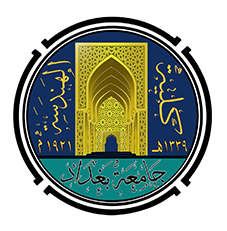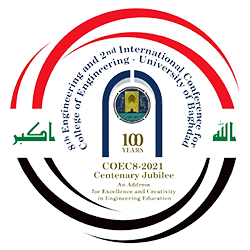Conference Tracks and Specialties
The track covers the specialties of Civil, Surveying, Water Resources, and Architectural Engineering. These specialties include, but not restricted to, the following lines of researches:
- Pre-Stressed Concrete Structures
- Rehabilitation of Existing Structures
- Strengthening of Concrete Structures with FRP
- Nonlinear Analysis of Structural Concrete Members
- Deep Foundation Engineering
- Sustainability and Geoe-Nviromental Engineering
- Soil-Structure Interaction Engineering
- Infrastructure Projects under the Financial Crises.
- BIM for Construction Project Management
- Cost-Effectiveness, Feasibility and Cost-Benefit Methods.
- Management Framework of The Construction Projects
- Decision Making in Construction Projects
- Pavement Engineering
- Traffic Engineering
- Sustainable Pavements
- Surface Water Quality Modeling and Control
- Solid Waste, Sewage and Industrial Treatment Management
- Water Treatment Plant Management
- Sustainable Process Engineering
- GIS and Remote Sensing Techniques Application
- Sustainable and Green Concrete
- Construction Materials
- Durability of Concrete
- Nanotechnology in Concrete
- Geodesy
- Photogrammetry
- Laser Scanning
- Remote Sensing
- Cartography
- Geographic Information System
- Hydraulics
- Hydrology
- Groundwater
- Irrigation and Drainage
- Hydraulic Structures
- Management of Water Systems
- Architecture and Environment
- Technology of Architecture
- Theory of Architecture
- Urban Design
The track covers the specialties of Mechanical, Energy, and Aeronautical Engineering. These specialties include, but not restricted to, the following lines of researches
- Fluid Flow and Heat Transfer Applications
- New and Renewable Energies
- Phase Change Flow and Heat Transfer
- Aerodynamics, Aircraft Design, and Jet Propulsion
- Computational Fluid Dynamics CFD
- Elasticity, Plasticity, and Stress Analysis
- Vibrations, and Structural Dynamics
- Control and Measurements
- Biomedical Engineering Applications
- Composite Materials
- Production and Manufacturing Processes
- Engineering Materials and Metallurgy Engineering
- Industrial Engineering
The track covers the specialties of Electrical, Electronics & Communication, and Computer Engineering. These specialties include, but not restricted to, the following lines of researches:
- Control Engineering, Robotics, and Artificial Intelligence Applications
- Parallel and Distributed Computer Systems
- IOT Technologies and Applications
- Network Virtualization and Cloud Computing
- Signal, Image, and Video Processing
- Power System Engineering and Harmonics
- Fault Detection and Protection Strategies
- Technologies of HVDC and FACTS Devices
- Power Transmission System Technology
- Electrical Machines Design and Control
- Power Electronics for AC and DC Drives
- Digital Systems Design
- Reversible and Quantum Logic
- Nano Electronics
- Analog and Mixed Signal Electronics
- Cognitive Radio
- Millimeter and Microwaves Technology and Applications
- Communications Networks, Technology, and Security
- Antennas
- Optical Communications and Optical Electronics
- 5G and Beyond Wireless Networks
The track covers the specialties of Chemical, Petroleum, and Environmental Engineering. These specialties include, but not restricted to, the following lines of researches:
- Petroleum and petrochemical industry
- Pharmaceutical industries
- Electrochemical processes and chemical corrosion
- Biochemical processes
- Preparation and use of catalysts
- Water pollution and treatment technologies
- Soil and ground water pollution
- Air pollution and control
- Solid waste management and landfills
- Renewable energies and sustainability
- Reservoirs engineering
- Drilling engineering
- Oil production engineering
- New technologies in petroleum engineering
- The economics of fuel utilization
Publication Fees
The publication fee is 100 USD.
Payment method: To be announced later.
Review Policy
Plagiarism: All submitted papers are checked for similarity using Turnitin plagiarism software.
The similarity percentage should be less than 20% .
Review process: all submitted papers are sent to at least two reviewers to undergo a double-blind peer review
process.
The conference ensures that unbiased consideration is given to all papers regardless of race, gender, religious
belief, ethnic origin, citizenship or political philosophy of the authors.

